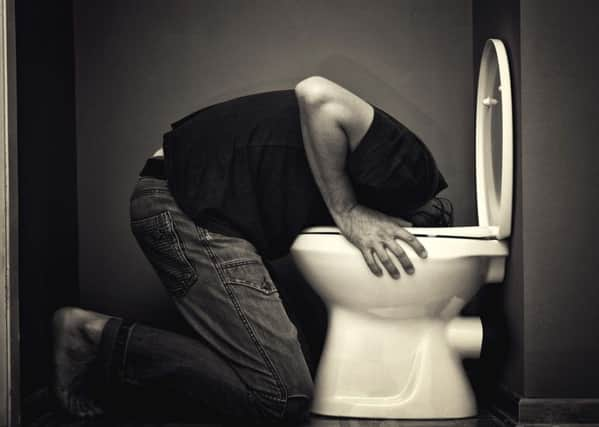Winter vomiting bug is coming


As the autumn leaves fall from the trees, we can spot the stereotypical signs of winter - the sun low in the sky, shops putting up decorations… a sudden queasy feeling in the pit of the stomach.
With the season inevitably comes an assortment of illnesses and viruses, including a regular unwelcome visitor - the norovirus.
Advertisement
Hide AdAdvertisement
Hide AdJust last week, the Wahaca chain of Mexican restaurants closed nine branches as 350 customers and staff reported symptoms of the dreaded “winter vomiting bug”.
Norovirus is the leading cause of gastroenteritis, an unpleasant inflammation of the digestive system.
Though it isn’t life-threatening, it is a rough ride for those who catch it. Symptoms include diarrhoea and projectile vomiting, fever, headaches and aching limbs.
They tend to clear up within two days, although the very young and very old may get dehydrated and need hospital care.
Advertisement
Hide AdAdvertisement
Hide AdThe bug is highly contagious. It spreads through contact with an infected person or contaminated object, including food. It often breaks out in offices, hospitals and schools, and hits much harder in the winter – hence its unflattering nickname, “the winter vomiting bug”. According to PHE, the number of laboratory reports of the virus over the past months is 29 per cent up on last year.
Although it’s rare for norovirus to spread across a chain, individual restaurants sometimes fall prey. In 2009, at least 240 people at Heston Blumenthal’s Berkshire restaurant The Fat Duck fell ill. A report identified contaminated oysters and food handled by unwell staff as the likely causes.
If you’ve contracted norovirus…
1. Don’t go out in public until 48hrs after your symptoms subside
2. Don’t visit your GP. Call them, or the NHS helpline 111
3. Stay hygienic. Wear gloves when touching shared surfaces
4. Don’t share food or utensils
5. Drink water, with rehydration salts or paracetamol if necessary
6. Get plenty of rest